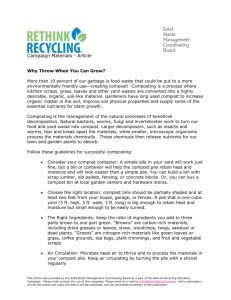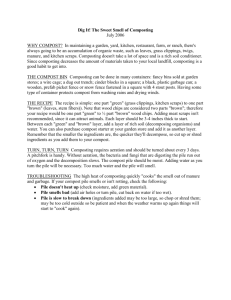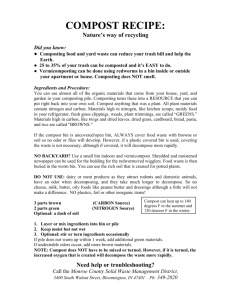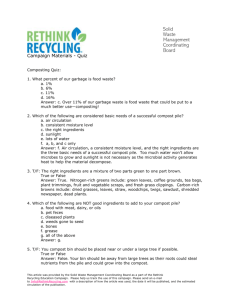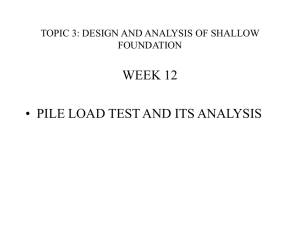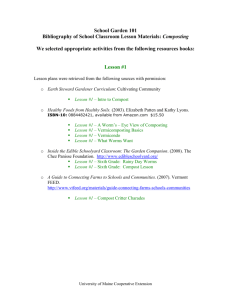1
advertisement
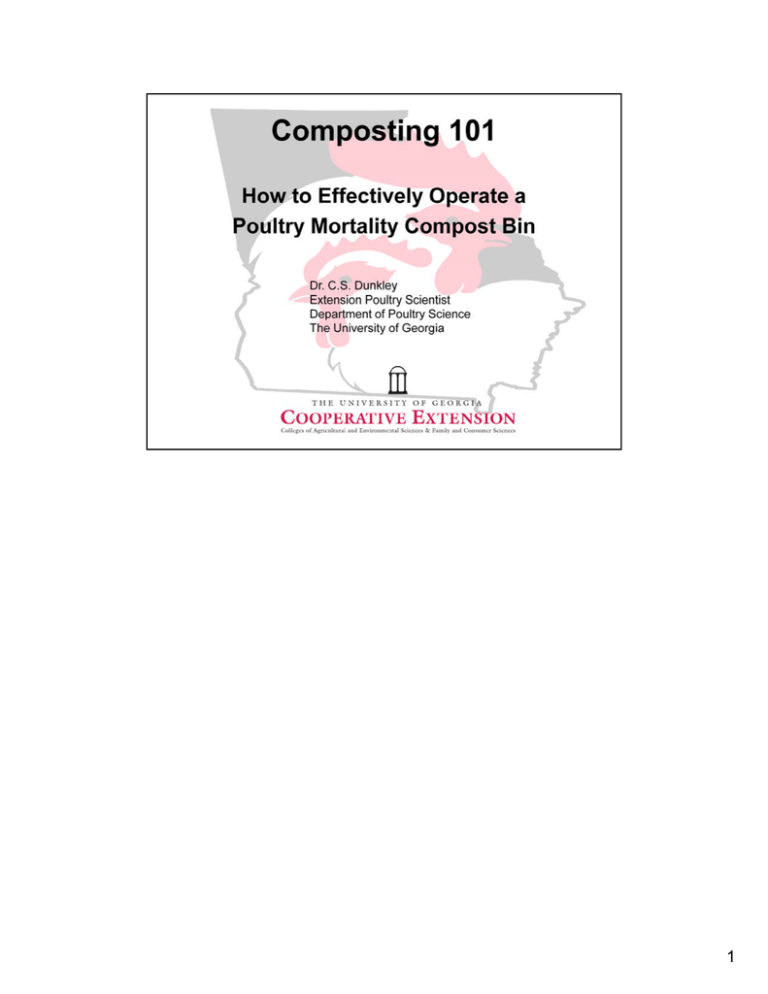
1 The objective of this presentation is to show the necessary steps to obtain a compost product from daily poultry mortality. 2 Composting is an age-old practice that can be beneficial for the environment. It is a natural process that generates a value-added end-product. 3 Bin composting is the method of composting that is discussed in this presentation. It is the most suitable method for daily mortality composting but is not feasible for mass mortality. Bin composting is also the simplest contained composting method. The process is carried out by heat loving micro-organisms micro organisms in the presence of oxygen. 4 Bin composting dead birds can be done in a new construction, an addition to a stock (storage) house or a renovation to an existing farm structure. 5 Several criteria are to be considered when beginning your mortality compost. A correctly operated compost requires a covered area with a concrete or impervious floor to prevent rain or storm water from reaching the compost. 6 Basic equipment is necessary for the daily operation of the compost bin. 7 Thermophillic microbial activity fuels the compost process as the multiplication of these microbes generate the heat that is necessary for the carcasses to break down. Growth of these microbes must be encouraged by providing the necessary components: carbon, oxygen and water. 8 Pre-heating the litter will give the compost a jump start. This can be done by adding some water to the litter that will be used to layer the bin. The first layer of 8 to 12 inches of litter is necessary to absorb any leachate that may come from the decomposing carcasses. 9 The bulking material is a high carbon material that serves to aereate the pile. The pile should be aereated because the microbes involved are aerobic. 10 If the litter is too dry it will be necessary to add water to speed up the heating process. 11 12 For more details about bin sizing, refer to University of Georgia Extension Bulletin 1266. The composting process occurs in two phases: 1) Primary Phase and 2) Secondary Phase. The primary phase takes place in the primary bins and the secondary phase takes place in the secondary bin. 13 The temperature will begin to fall when the microbial activity is slowing down. The pile can begin to cool down earlier than usual for a number of reasons (see the troubleshooting section). 14 When the pile is turned, all the carcass may not be fully decomposed. Turning allows you to re-constitute the pile and add water so that it can re-heat. 15 16 17 Proper management of the compost pile is essential in order for it to operate effectively. Monitoring the bins is an important management tool. 18 The temperature should be checked regularly to ensure that it is at the required levels. 19 High temperatures in the compost piles will destroy microbes. Extremely high temperatures that last for too long can also destroy the heat-loving microbes that are necessary for the compost pile to operate effectively. Apart from the destruction of thermophilic microbes from extreme temperatures, temperatures that are too high for too long can cause fires fires. 20 The microbes need moisture to survive. The right balance must be met; that is, it must not be too wet and it must not be too dry. When the pile becomes too wet, the microbial environment becomes suitable for anaerobic microbes, which will result in the production of offensive odors. 21 Taking a handful of material from the pile is a simple way to test the moisture content. When squeezed into a ball, the compost material should loosely hold its shape. If it drips, it is too moist and more carbon material should be added to reduce the moisture content in the pile pile. If the ball does not keep its shape the pile is too dry, water should be added to increase the moisture content in the pile. 22 There is no fixed time that can be determined for carcasses to decompose. Preheating the litter before it is added to the pile will help to speed up the process. 23 The end product of the process is about 25% less than was started out with and can be easily stored until it is to be used. 24 25 Remember to check temperatures regularly! If you are unsure of the moisture content of the pile, do the moisture check by squeezing a handful of the pile in your hand. If the ball drips, the pile is too wet. If the ball falls apart without keeping its shape, the pile is too dry. If the ball loosely keeps its shape, the moisture content is just right. 26 The C:N ratio should range from 25:1 to 40:1. 27 If you are smelling the pile, something is wrong. 28 29 If scavengers are hanging around the pit, something is wrong. It is also helpful to secure your premises from rodents and other scavengers that may be attracted to your farm. 30 A- The desirable moisture level in the pit should be 40 to 60%. If the moisture content is higher, it will result in low pile temperatures. B- Low moisture levels and improper use of carbon sources will result in failure to decompose. C The walls and floors of the compost pit act as a heat sink and will pull the heat Cfrom the carcasses, slowing down the decomposition process. D- It is important to make the first layer 8 to 12 inches thick to absorb the leachate generated from the decomposition process. 31 32 33 34
